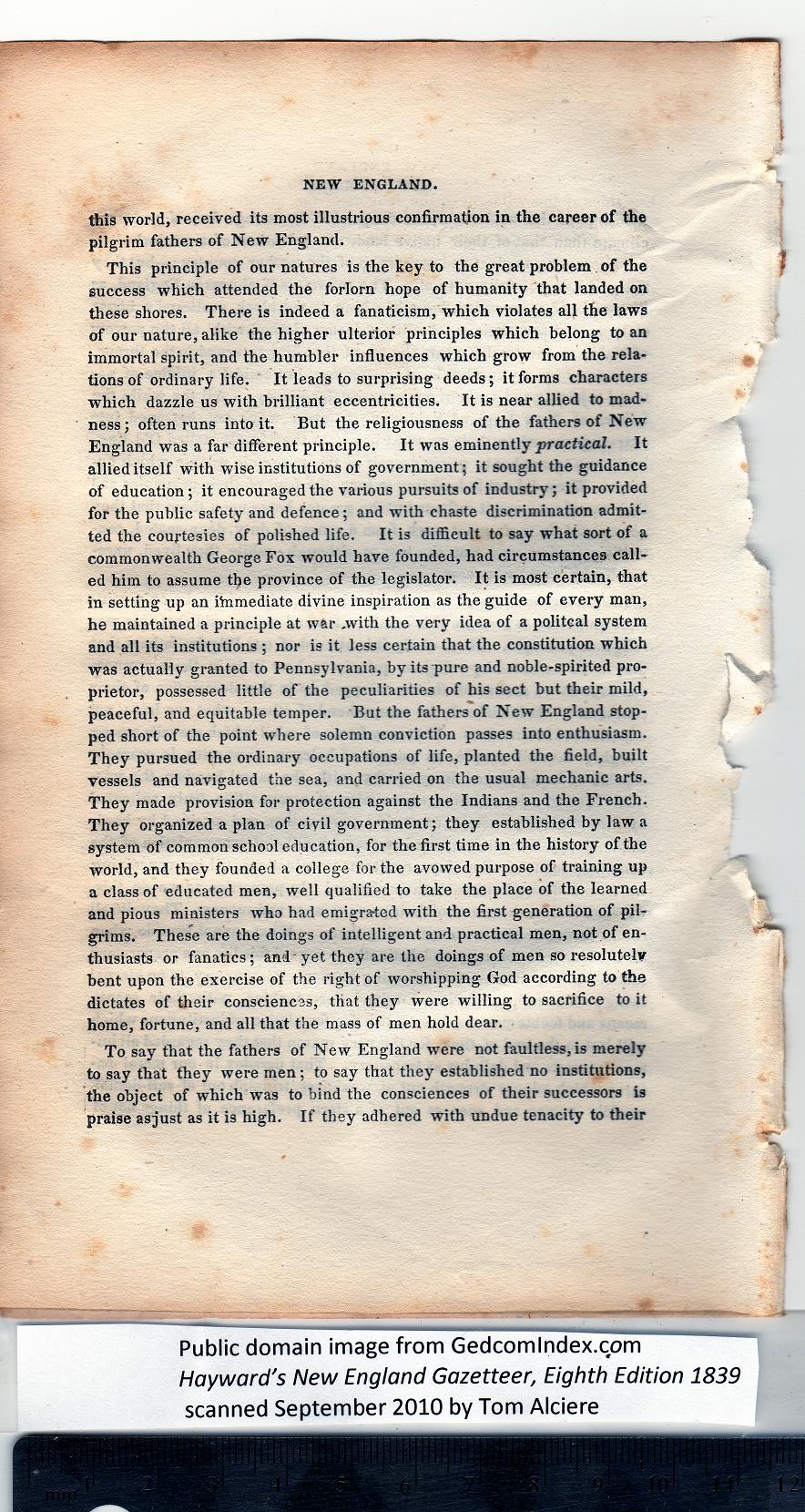|
NEW ENGLAND.
this world, received its most illustrious confirmation in the career of the
pilgrim fathers of New England.
This principle of our natures is the key to the great problem of the
success which attended the forlorn hope of humanity that landed on
these shores. There is indeed a fanaticism, which violates all the laws
of our nature, alike the higher ulterior principles which belong to an
immortal spirit, and the humbler influences which grow from the rela¬
tions of ordinary life. It leads to surprising deeds; it forms characters
which dazzle us with brilliant eccentricities. It is near allied to mad¬
ness; often runs into it. But the religiousness of the fathers of New
England was a far different principle. It was eminently practical. It
allied itself with wise institutions of government; it sought the guidance
of education; it encouraged the various pursuits of industry; it provided
for the public safety and defence; and with chaste discrimination admit¬
ted the courtesies of polished life. It is difficult to say what sort of a
commonwealth George Fox would have founded, had circumstances call¬
ed him to assume the province of the legislator. It is most certain, that
in setting up an ihimediate divine inspiration as the guide of every man,
he maintained a principle at war .with the very idea of a politeal system
and all its institutions ; nor is it less certain that the constitution which
was actually granted to Pennsylvania, by its pure and noble-spirited pro¬
prietor, possessed little of the peculiarities of his sect but their mild,
peaceful, and equitable temper. But the fathers of New England stop¬
ped short of the point where solemn conviction passes into enthusiasm.
They pursued the ordinary occupations of life, planted the field, built
vessels and navigated the sea, and carried on the usual mechanic arts.
They made provision for protection against the Indians and the French.
They organized a plan of civil government; they established by law a
system of common school education, for the first time in the history of the
world, and they founded a college for the avowed purpose of training up
a class of educated men, well qualified to take the place of the learned
and pious ministers who had emigrated with the first generation of pil¬
grims. These are the doings of intelligent and practical men, not of en¬
thusiasts or fanatics; and'yet they are the doings of men so resolutely
bent upon the exercise of the right of worshipping God according to the
dictates of their consciences, that they were willing to sacrifice to it
home, fortune, and all that the mass of men hold dear.
To say that the fathers of New England were not faultless, is merely
to say that they were men; to say that they established no institutions,
the object of which was to bind the consciences of their successors is
praise asjust as it is high. If they adhered with undue tenacity to their
PREVIOUS PAGE ... NEXT PAGE
This page was written in HTML using a program written in Python 3.2 and image-to-HTML text generated by ABBYY FineReader 11, Professional Edition.
|
